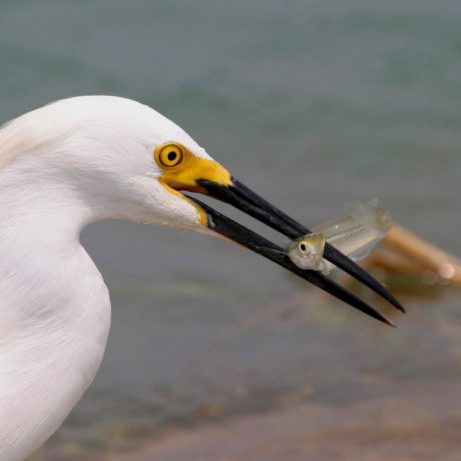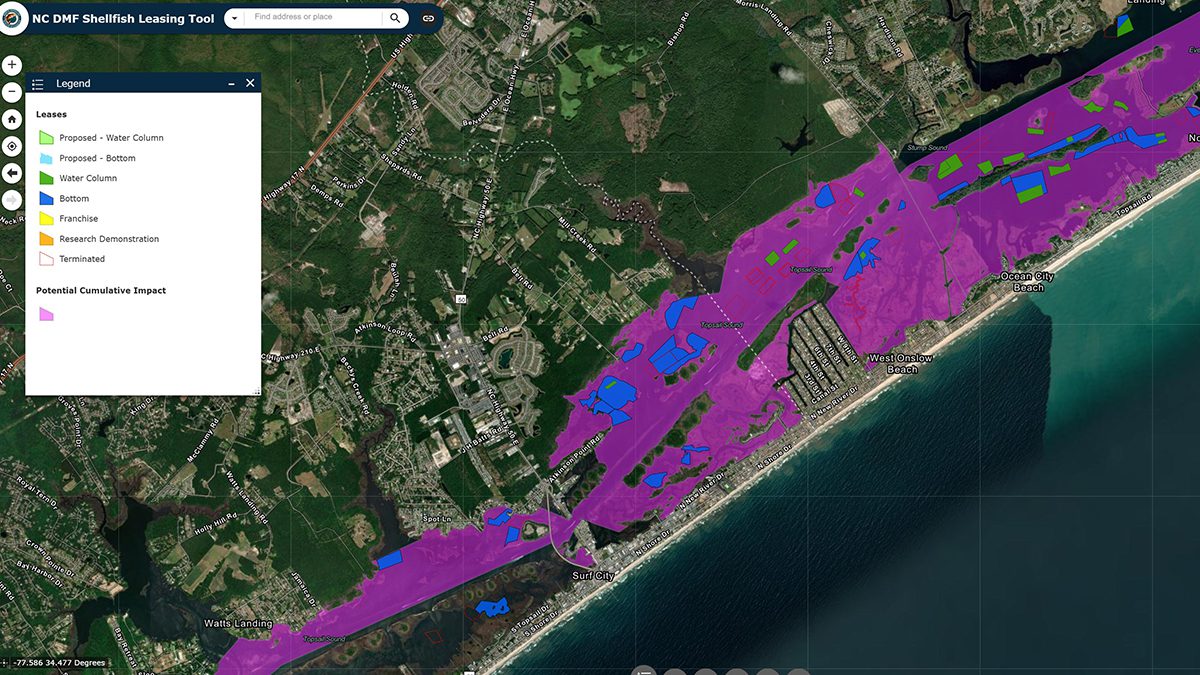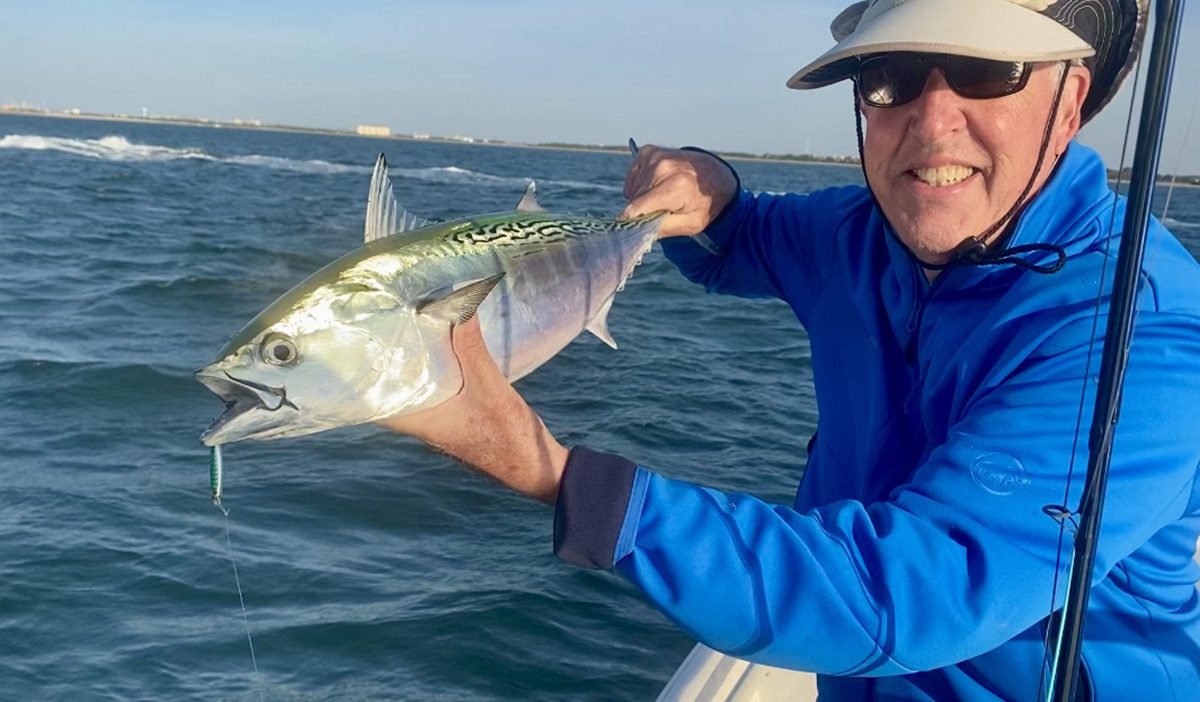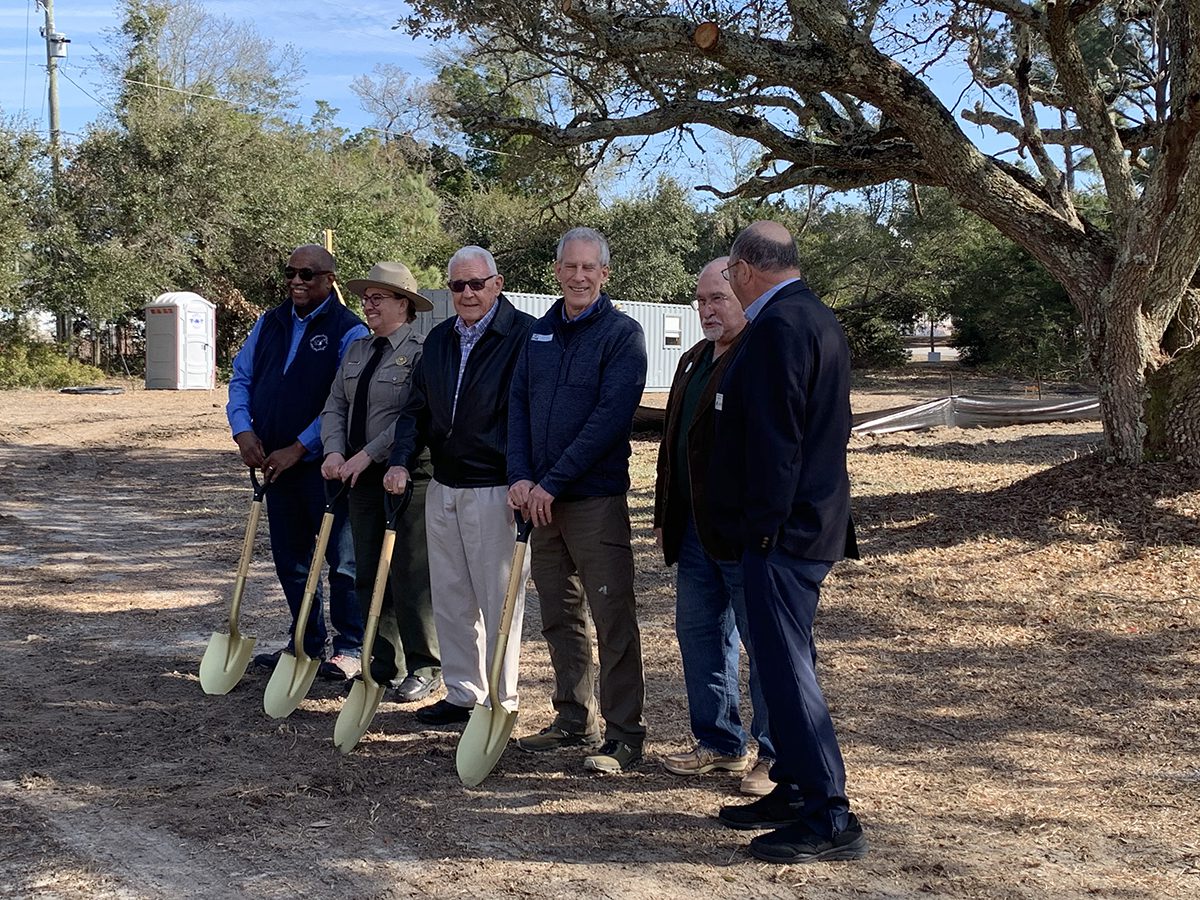
SWANSBORO – His parents did not tell him why they brought him to Hammocks Beach State Park.
As a child, Dwayne Patterson did not think to ask. The summer day trips with his mom from their home in Kinston to Bear Island were a beach escape they routinely enjoyed when his father, a high school agriculture teacher, would bring some of his students to camp.
Supporter Spotlight
“I didn’t realize we were going to this beach because it was the Black beach,” Patterson said.
Patterson, who is retiring this week as the director of the North Carolina Division of Parks and Recreation, recently returned to the park to help break ground on the renovation of the teachers’ building, named so because it was where Black educators from across the state would converge to meet, recreate and tackle educational issues during segregation.
“This place is a very special place for me,” Patterson said at the groundbreaking Friday.
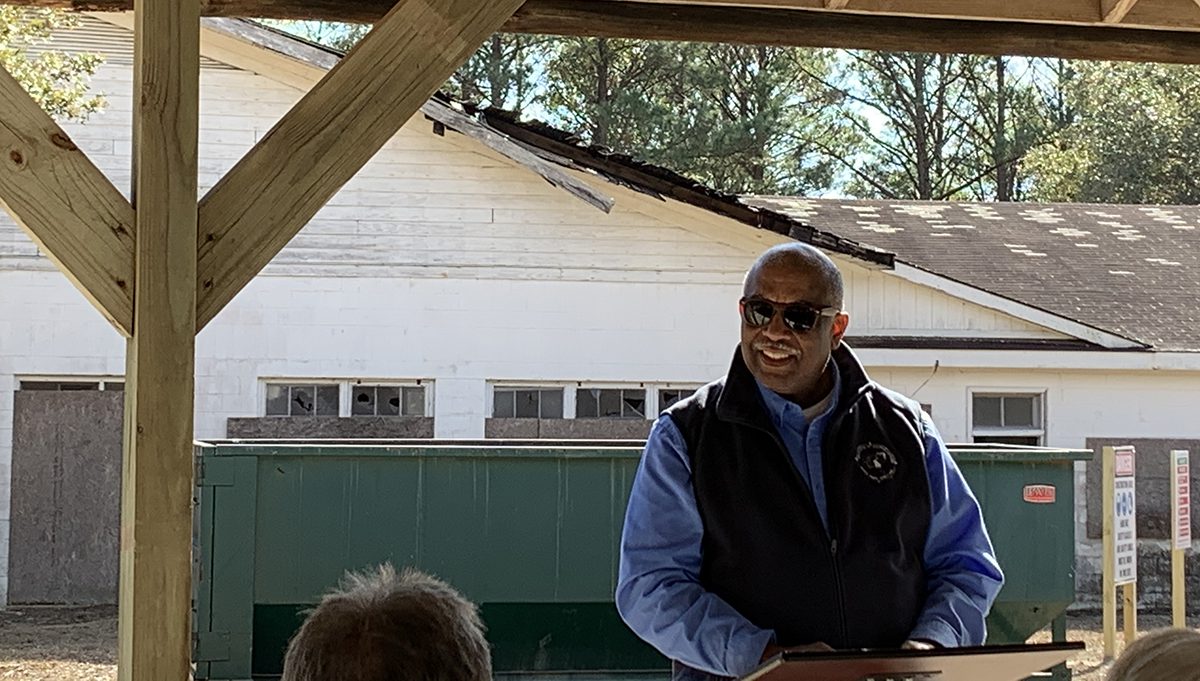
Behind him, the sprawling, white-painted cinder block building stood nestled among oak trees peppered across the grounds at the entrance to the state park.
“To have this moment where we come back … it makes me feel very good,” Patterson said. “I just want to say that it’s a special place and when we turn this over to open it up and we dedicate it … I hope we’re turning over a new leaf being involved in the community.”
The more than 5,300-square-foot building is being transformed into a community space, one that will be available to host everything from conferences and workshops to family reunions and wedding receptions.
Supporter Spotlight
Guests of those types of events will be able to peruse interpretive exhibits using audio and visual equipment detailing the building’s historical significance.
Between the early 1950s and 1970, the building enriched the lives and careers of Black educators and hosted a statewide teachers conference to discuss integration of North Carolina schools, according to Sarah Kendrick, Hammocks Beach State Park superintendent.
“The teachers who gathered here would nurture thousands of students who would go on to lead North Carolina toward economic prosperity, environmental sustainability and community unity,” she said. “We as a staff are very excited and can’t wait to see this building full of people again.”
She attributed to historic levels of funding for the Parks and Recreation Trust Fund and Patterson’s vision for the $3.6 million renovation project.
Fred Schachter, president of Friends of the Hammocks and Bear Island and a park volunteer, said a recurring theme he hears from visitors to the park is that they were unaware of its existence.
“It’s amazing. People who have lived in this county for 10 years (have said) I didn’t know this place was here,” he said. “I’m hoping that this building behind me stops a lot of that.”
Schachter said that each year he meets visitors to the park who share stories of when their parents and grandparents traveled to meet at the teachers’ building.
“I get to hear stories of what this place was like in the late ’50s or during the ’60s and early ’70s. It is really a remarkable story every time I hear that. I’m hoping that with the opening of this building that not only will they be able to see the stories, but the people that come here every year to relive their youth and see this place and enjoy it the way that it should be,” he said.
N.C. Department of Natural and Cultural Resources Secretary Reid Wilson said the places the agency manages, including the state’s parks, museums and aquariums, bring people together.
“They help create common ground and any time we can have common ground in the year 2023 that’s a really good thing,” he said. “Everybody’s treated the same. Everybody’s welcome at the Department of Natural and Cultural Resources.”
Hammocks Beach State Park is incredible biologically and scenically, he said.
“But it also has this really important historical piece to it that Dwayne lived and I really appreciate that,” Wilson said. “You remember what this was like. I’m sad to say that back in the day there were only three of our state parks where African Americans could go.”
Those included Hammocks Beach State Park, Jones Lake State Park in Elizabethtown and the southern entrance to William B. Umstead State Park in Raleigh.
“By preserving this building, and I know it would have been cheaper to demolish it and building a new one, but by preserving it as it is we will be able to tell the authentic story of this place and what it meant to so many teachers and so many kids across the state,” Wilson said. “I’m not a builder. I’m not an architect, but it seemed on the inside it had good bones and it was a strong building and if we could just give it the right attention and sufficient funding we could magically bring it back to very close what it was before when so many people used this place and enjoyed it and benefited from it.”
Renovations may be completed as early as this fall.

